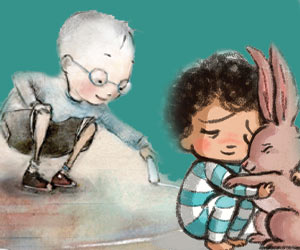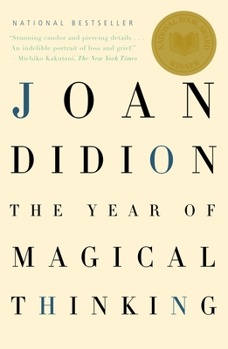The Year of Magical Thinking: National Book Award Winner
Select Format
Select Condition 
Book Overview
NEW YORK TIMES BESTSELLER - NATIONAL BOOK AWARD WINNER - From one of America's iconic writers, a stunning book of electric honesty and passion that explores an intensely personal yet universal experience: a portrait of a marriage--and a life, in good times and bad--that will speak to anyone who has ever loved a husband or wife or child. One of The New York Times's 100 Best Books of the 21st Century Several...
Customer Reviews
Title is misleading
Not what I expected.
Don’t buy from this publication!
The Year of Magical Thinking
Chronicles of a Cool Customer
AN ESPECIALLY FINE READING OF THIS LANDMARK EXPLORATION OF GRIEF
The Magical Thinking of Denial
Deserves to become a classic memoir about grief and loss
The Year of Magical Thinking Mentions in Our Blog

A few weeks ago, The New York Times Book Review published a piece entitled The 100 Best Books of the 21st Century and it has garnered lots of attention. Here's a look at the list, along with highlights, a reading guide, and more.

Our newest survey with OnePoll asked 2,000 U.S. adults how they feel about the self-help genre. And what we learned gave us a whole new way of looking at things.

Our TBR collections just keep growing, but that doesn't stop us from browsing (and buying!) new books! Here are thirteen May releases that we can't wait to pick up, along with suggestions for books you can read right away.

This can be a rough time of year for many. Grief, loneliness, and scarcity are among the reasons people may feel particularly isolated and sad during the holidays. It's an opportunity to reflect on these difficulties and how we can help. Here are twelve books that offer perspectives on empathy and awareness.






